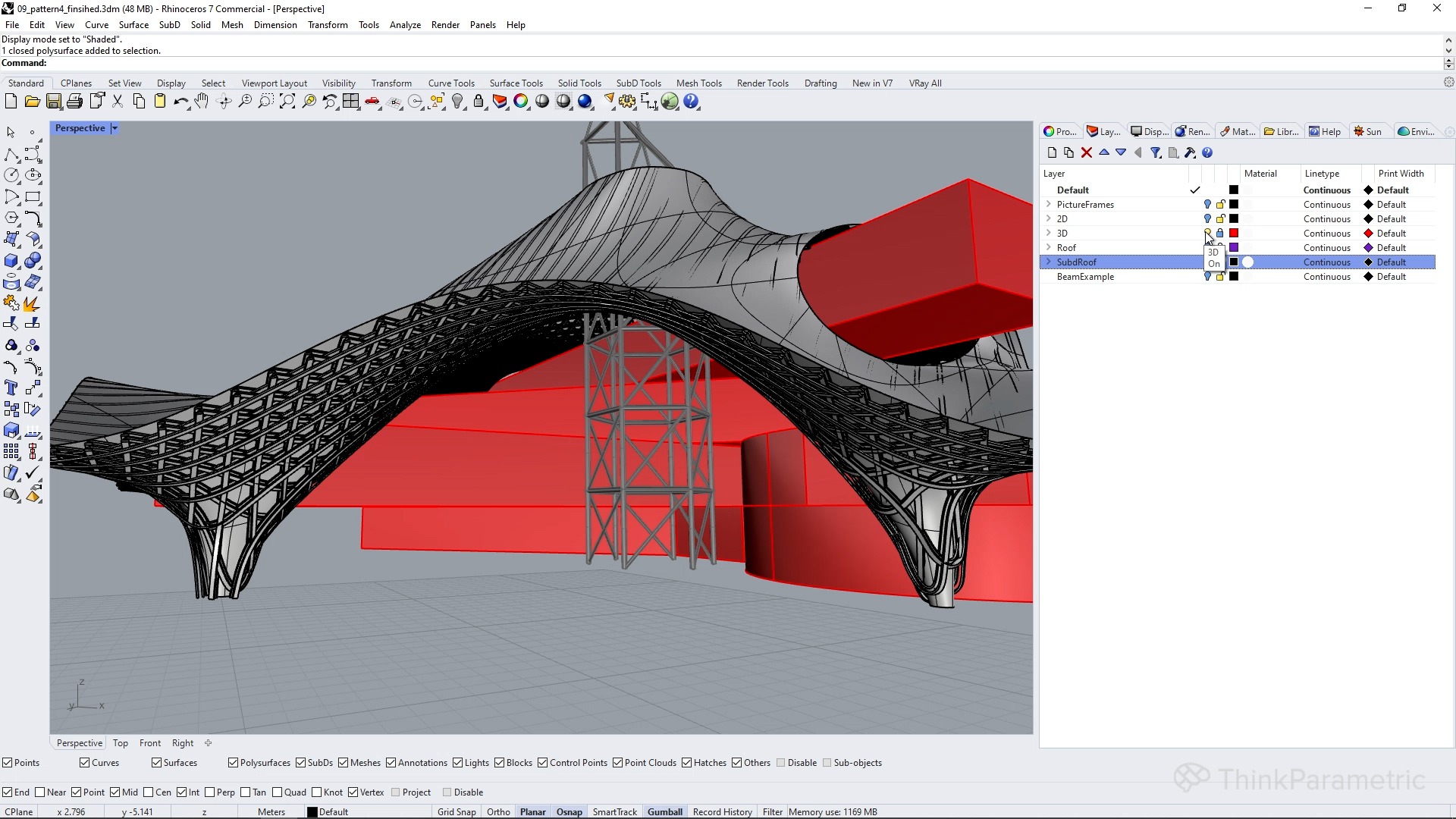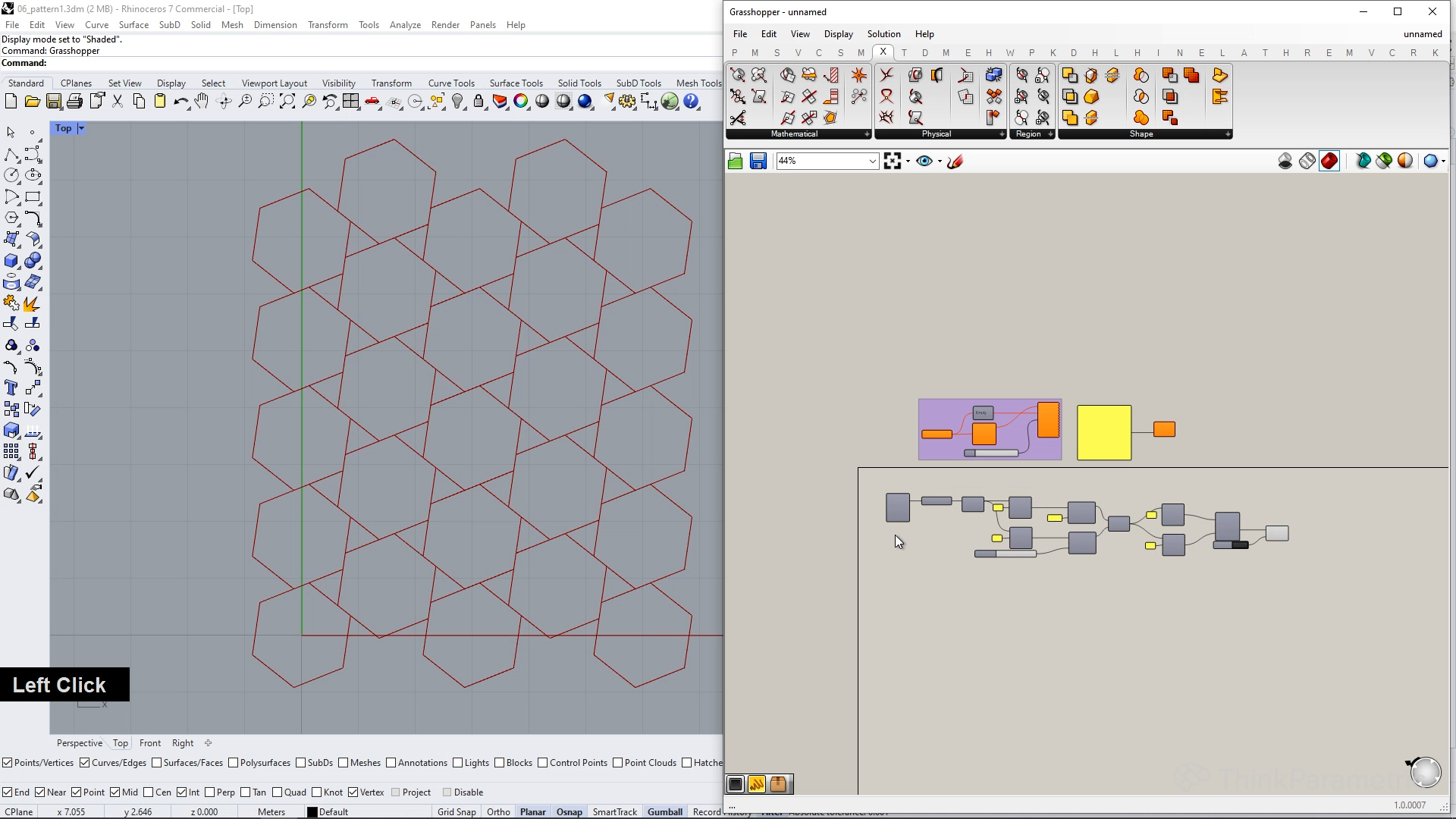Why take this course
In this course, you will learn how to model an organic envelope using the new Subd or Subdivision geometry available in Rhino 7. Arie-Willem de Jongh - a veteran computational design expert - will be your instructor for this course. Knowing how to model using Subd’s benefits you significantly. It prepares you for design, engineering, and manufacturing careers while improving your skills in handling complex shapes.
The roof structure of the Centre Pompidou in Metz by Shigeru Ban Architects will be used as a base. We’ll start by modeling the roof shape using Subd’s. This geometry type is a mix between Meshes and NURBS. It will allow us to model organic shapes fast and accurately.
We’ll create the pattern for the roof structure in Grasshopper, a parametric modeling plugin for Rhino. You'll see why parametric modeling tools are excellent at generating seemingly complex patterns in a simple, understandable way. When the pattern is ready, we'll return to the roof we modeled at the beginning of the course. We’ll use the natural form of the roof as an input for Grasshopper to give shape to the pattern. We'll use Grasshopper to generate the beams and the interwoven pattern of the roof structure.
It will be a challenging course for advanced users in both Rhino and Grasshopper. However, it will be fun to learn how these complex forms and patterns are made.
Learn Subd Geometry Modeling in Rhino 7
With Rhino's implementation of SubD's, you'll have the power to create and manipulate Subdivision surfaces like never before, resulting in highly accurate and detailed objects that can be seamlessly converted into manufacturable solids.
Bring Your Ideas To Life
Subdivision geometry enables you to create complex organic shapes that are difficult to achieve with traditional CAD techniques. The ability to view your designs from all angles will help you make more informed design decisions. Subdivision modeling in Rhino makes experimenting with different design ideas and exploring new concepts easy, ultimately improving your creativity and visualization skills.
Knowledge Of Subd Modeling Is An In-demand Skill
Rhino is a popular software used in architecture, product design, and engineering. Subdivision modeling is essential for careers in these fields, and by acquiring this skill, you will be better prepared for the workforce and have a higher chance of landing that dream job.

3D Model With Precision
Precision and accuracy are critical for architecture, engineering, and manufacturing industries. Subdivision modeling enables you to create highly accurate models in Rhino with exacting detail. This level of precision is essential, as minor errors can lead to significant problems.
Easy Learning Curve
Rhino has a user-friendly interface and intuitive tools that make it easy to create and manipulate Subdivision geometry. Modeling in Rhino using Subd’s feels like sculpting a clay model, pushing and pulling vertices to get the right form. You’ll be surprised by how little modeling and editing it takes to get the desired result compared with NURBS or Mesh geometry.

1.- What you will learn in this course
02min 11seg2.- Draw the roof using the new Subd geometry type - part 1
16min 49seg3.- Draw the roof using the new Subd geometry type - part 2
10min 50seg4.- Sculpt the roof into its natural form - part 1
11min 59seg5.- Sculpt the roof into its natural form - part 2
15min 05seg6.- Create the roof structure pattern using Grasshopper
14min 24seg7.- Shape the pattern according to the roof form
10min 59seg8.- Create the interweaving beams from the pattern - part 1
12min 19seg9.- Create the interweaving beams from the pattern - part 2
07min 46seg
